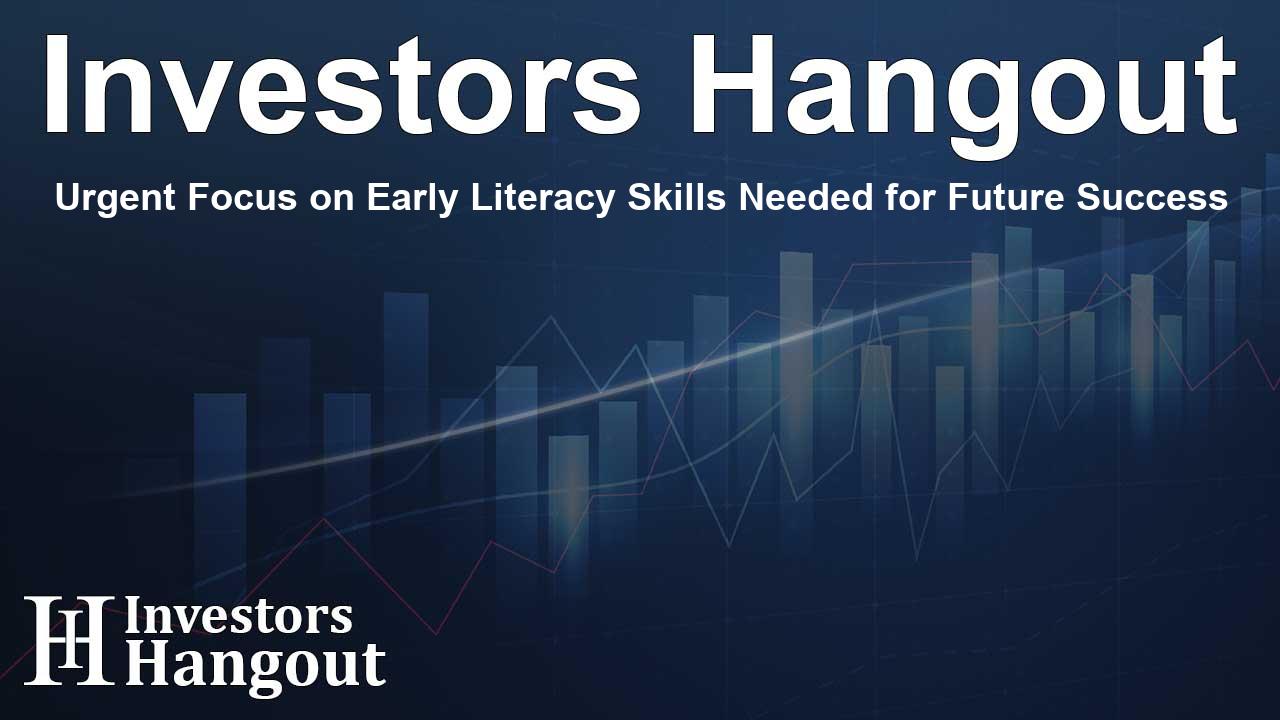Urgent Focus on Early Literacy Skills Needed for Future Success

Emerging Data on Early Literacy Readiness
Starting the new academic year, the data shows a promising trend in literacy readiness among young students. Nearly half of K–2 learners are poised to acquire reading skills, signaling post-pandemic progress. However, the modest yearly gains point toward a critical need for ongoing and robust early intervention.
Current Findings and Implications
Insights gathered from accurate early literacy data indicate that 48% of K–2 students show readiness to learn how to read at the commencement of the school year, a significant high since the pandemic began. Nevertheless, the year-over-year advancements have stalled, with current levels still falling short compared to pre-pandemic benchmarks. This emphasizes the vital requirement for effective foundational skills training and the necessity of support for young readers facing challenges.
The Importance of Early Intervention
Research suggests that students who start behind in reading but receive adequate interventions can close gaps and maintain their reading trajectory up until the end of third grade. Thus, early support is essential for literacy development. The earlier that intervention occurs within the K–2 framework, the greater the chance for students to reach reading proficiency by the time they graduate to third grade.
Statements from Educational Leaders
According to Susan Lambert, chief academic officer for elementary humanities at Amplify, it is promising to observe that close to half of the youngest students are prepared for significant instruction. This reflects the diligent efforts of educators and the effectiveness of employing evidence-based methodologies in classrooms. Yet, there is concern over the stagnation in progress year-over-year, signaling the necessity for heightened focus on early interventions. The evidence suggests that timely interventions can drastically improve the likelihood of readers' success by third grade.
Recommendations for Schools and Districts
Amplify advocates for educational districts to adopt a universal screening process implemented three times annually to track students’ progress in early reading. This allows teachers to make informed decisions regarding the educational needs of their students. The findings imply that schools should prioritize:
- Identifying students requiring extra assistance;
- Ensuring all learners receive high-quality instruction informed by evidence-based methods, particularly through the Science of Reading;
- Creating actionable plans to meet diverse student needs and allocating the necessary resources;
- Regularly assessing student progress and revising approaches as required.
About Amplify
Since its inception in 2000, Amplify has been at the forefront of K–12 education, offering advanced curriculum and assessment tools through an intuitive platform filled with extensive free lessons. Its engaging programs in ELA, math, and science drive rigorous pedagogical practices that inspire creative, independent, and deep thinking in students. Through formative assessment resources, educators can identify specific instructional needs to build solid reading and math foundations. With a reach that now encompasses over 18 million learners and educators in every state and across six continents, Amplify is committed to fulfilling the educational requirements of all students. For further details, visit Amplify.com.
Frequently Asked Questions
1. What is the current literacy readiness percentage among K–2 students?
Approximately 48% of K–2 students are prepared to learn reading skills at the beginning of this school year.
2. Why is early intervention critical for literacy success?
Intervening early increases the chances for students to catch up and achieve reading proficiency by the end of third grade.
3. What recommendations does Amplify provide to schools?
Amplify suggests conducting universal screenings, ensuring effective instruction, and monitoring student progress regularly.
4. How has the pandemic affected literacy readiness?
While improvements are noted, current readiness levels are still below pre-pandemic standards, indicating a need for ongoing focus.
5. How does Amplify support educators?
Amplify provides tools and resources that help educators understand and address the learning needs of every student effectively.
About The Author
Contact Lucas Young privately here. Or send an email with ATTN: Lucas Young as the subject to contact@investorshangout.com.
About Investors Hangout
Investors Hangout is a leading online stock forum for financial discussion and learning, offering a wide range of free tools and resources. It draws in traders of all levels, who exchange market knowledge, investigate trading tactics, and keep an eye on industry developments in real time. Featuring financial articles, stock message boards, quotes, charts, company profiles, and live news updates. Through cooperative learning and a wealth of informational resources, it helps users from novices creating their first portfolios to experts honing their techniques. Join Investors Hangout today: https://investorshangout.com/
The content of this article is based on factual, publicly available information and does not represent legal, financial, or investment advice. Investors Hangout does not offer financial advice, and the author is not a licensed financial advisor. Consult a qualified advisor before making any financial or investment decisions based on this article. This article should not be considered advice to purchase, sell, or hold any securities or other investments. If any of the material provided here is inaccurate, please contact us for corrections.
